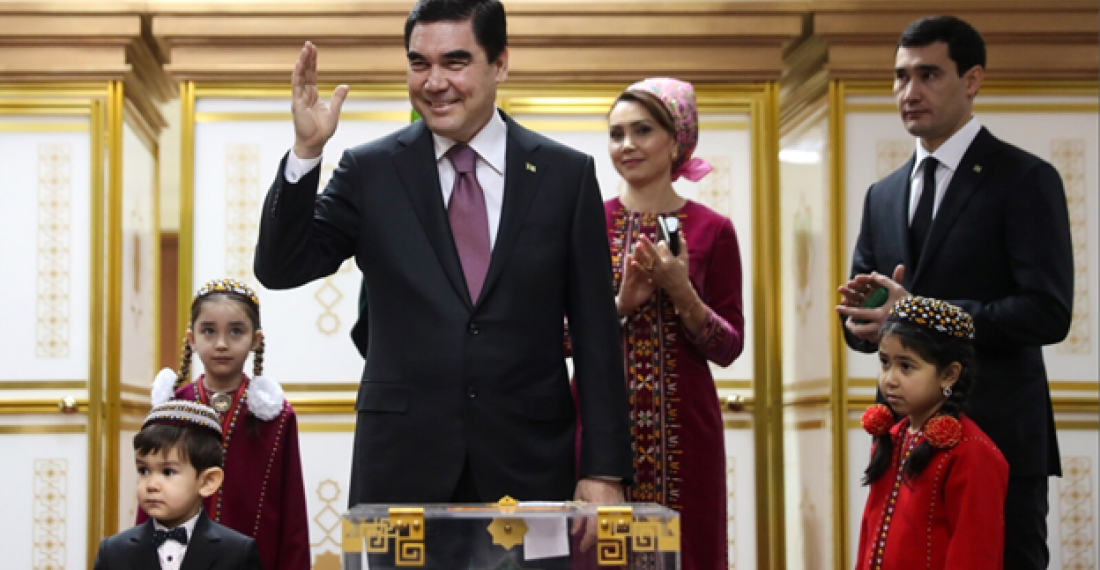Voting closed on Saturday evening in Turkmenistan's presidential election, with continuity expected to be the outcome. Serdar Berdymukhamedov, son of current President Gurbanguly Berdymukhamedov, is expected to win in a landslide.
In February, the current President Berdymukhamedov Sr. called a snap election after announcing he was stepping down two years before the end of his current term. Reports from Turkmen News suggested that the reason for the unexpected election was due to the physical health of the President.
Turkmenistan holds its elections in the two-round system. Berdymukhamedov Jr. from The Democratic Party of Turkmenistan will face several candidates from differing parties. However, all legal political parties currently support the ruling government, and according to the Carnegie Moscow Centre, all were created to give the appearance of a multi-party election. No election since 1991 has been deemed free and fair by international observers such as the OSCE. Berdymukhamedov Sr. won the previous election in 2017 with a vote share of 97.69%. Berdymukhamedov Jr. is considered the President-in-waiting and is expected to win with a similar margin.
As voters go to the ballot box, local authorities in the city of Turkmenbashi have been preparing for a visit by Berdymukhamedov Jr. in the middle of March where he will reportedly announce the construction of a new hospital. Portraits of the President-in-waiting are already being seen around the city, resolving any doubts as to who will win in the election this week.
On 7 March, the younger Berdymukhamedov published his election programme in the Neutral Turkmenistan newspaper. The programme read, “We will develop measures to improve the political and legal foundations of the Turkmen state and society, deepen national democracy, develop civil society, enhance the political engagement of our population, promote the development of the electoral system, and undertake more efforts to draw on global experience in this respect.”







